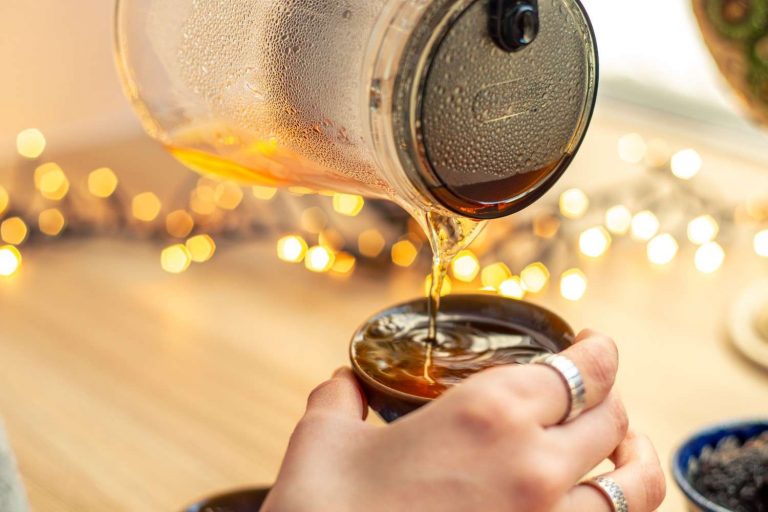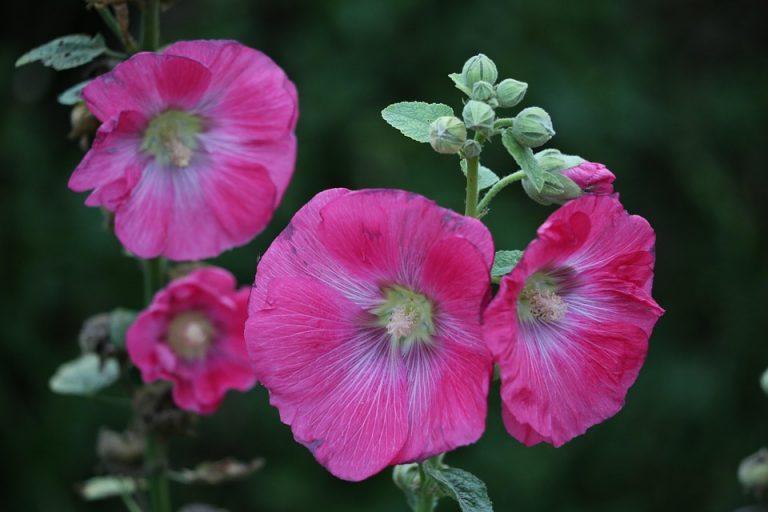Brain mood herbs are plants used to sharpen your attention, steady your emotions, and soothe your nervous system. They matter because your days don’t run on perfect conditions, they run on how clear your mind is and how steady your nerves feel. If you want sharper focus without jittery stimulants, or calmer evenings without groggy pharmaceuticals, these herbs can change your life. This guide gives you the herbs, the science, the dosages, and the no-nonsense safety advice so you can start feeling better, faster.
Contents
- How To Think About Brain Mood Herbs
- Why Science Backs These Choices
- How To Use This List
- Ashwagandha, The Calm Focuser
- Rhodiola, The Quick Clarity Herb
- Bacopa Monnieri, The Memory Maker
- Ginkgo Biloba, The Circulation Booster
- Lemon Balm, The Soothing Focus
- Tulsi (Holy Basil), The Nervine Shield
- Lavender, The Nighttime Quiet
- How Long Until You’ll Notice A Difference?
- Real-Life Combination Routines
- When To See A Clinician
- Bottom Line
- FAQ
How To Think About Brain Mood Herbs
Some herbs act on neurotransmitters, some fight inflammation, and some help your stress response recover. Think of them like trusted allies: some wake up your brain, others soothe it, and together they help you stay present. Use them responsibly. Look for quality, understand interactions, and respect timing.
When I recommend an herb, I want you to be confident. That’s why I’ll name studies, mention doses used in clinical trials, and give real-world ways to use each herb. You deserve clear guidance, not guesses.
Why Science Backs These Choices
You don’t need blind faith. Research from institutions like the National Institutes of Health and publications in journals such as the Journal of Psychopharmacology show measurable benefits for many of these herbs. For example, adaptogens like ashwagandha and rhodiola have multiple randomized controlled trials showing improved stress resilience and cognition. I’ll point you to the studies as we go so you can read them yourself.
How To Use This List
Pick one or two herbs to start. Use consistent dosing for 4–8 weeks to judge effect. Combine a calming herb at night with a focus herb in the morning. Keep a short journal: sleep, mood, focus, and any side effects. That simple habit teaches you what actually helps your body.
Ashwagandha, The Calm Focuser
Ashwagandha is an adaptogen used for centuries. It calms the stress response while supporting attention. In randomized trials, ashwagandha reduced cortisol and improved cognitive function in adults under stress. Doses commonly used: 300–600 mg of a root extract twice daily.
How to use: take in the morning with breakfast for steady focus, or in the evening to unwind if sleep is the priority. Watch for interactions if you’re on thyroid medication or immunosuppressants, and avoid it in pregnancy.
Rhodiola, The Quick Clarity Herb
Rhodiola gives a gentle lift to energy and concentration, without the crash. Studies show it can reduce mental fatigue and improve performance during stressful tasks. Typical doses: 100–400 mg standardized extract, often taken before mentally demanding work.
Use rhodiola before a big meeting or study session. It plays nicely with tea or coffee but skip stimulants if you’re sensitive. If you have bipolar disorder, check with your clinician first; some mood disorders respond unpredictably to stimulating adaptogens.
Bacopa Monnieri, The Memory Maker
Bacopa is one for slower wins. It supports memory consolidation and attention over weeks. Clinical trials commonly use 300–450 mg daily of a standardized extract, showing improvements in memory and processing speed after eight to twelve weeks.
How to use: take daily with food and expect gradual improvement. Bacopa can interact with thyroid meds and sedatives; start low and watch for GI upset for the first week or two.
Ginkgo Biloba, The Circulation Booster
Ginkgo improves blood flow to the brain and supports cognitive function, particularly in older adults. Research suggests modest benefits for attention and processing speed. Standardized extract doses are usually 120–240 mg daily.
Use with caution if you take blood thinners; ginkgo can increase bleeding risk. Choose a standardized extract (often labeled as EGb 761) to match clinical studies and avoid unstandardized leaf powders.
Lemon Balm, The Soothing Focus
Lemon balm (Melissa officinalis) quiets anxiety while supporting attention. Studies of lemon balm show improvements in mood and cognitive performance in stressed volunteers. It’s excellent as a tea or tincture; clinical doses are variable, but 300–600 mg of extract or several cups of tea daily is common.
Drink it in the late afternoon to soften stress, or as a nighttime tea for gentler sleep. Lemon balm plays well with low-dose benzodiazepines but check with your prescriber for combinations with sedatives.
Tulsi (Holy Basil), The Nervine Shield
Tulsi, or holy basil, is another adaptogen that reduces stress and supports mental clarity. Trials show reductions in stress markers and subjective anxiety, plus improvements in mood and focus. Typical dosing ranges from 300–2,000 mg of leaf powder or equivalent extract daily, depending on preparation.
Tulsi is forgiving and safe for many people, but if you are on diabetes medications or anticoagulants, consult a clinician. Try tulsi as a daily tea or capsule to steady your baseline stress level.
Lavender, The Nighttime Quiet
Lavender soothes the nervous system and improves sleep quality, which indirectly sharpens daytime focus. Aromatherapy and oral lavender preparations have clinical evidence supporting reduced anxiety and better sleep. Oral doses in studies vary; lavender oil capsules (80 mg twice daily) are commonly used in trials.
Use lavender as an evening ritual: tea, diffuser, or a small oral supplement. Better sleep = better focus. It’s gentle, but don’t combine high-dose lavender with sedatives without medical advice.
How To Combine These Herbs Safely
Start simple: choose one focus herb (rhodiola, bacopa, ginkgo) and one calming herb (ashwagandha, lemon balm, tulsi, lavender). Keep dosing conservative at first. A sample routine might be rhodiola in the morning, bacopa for daily memory support, and lemon balm or lavender at night.
Quality matters. Look for third-party testing like USP, NSF, or ConsumerLab. Standardized extracts (they list active compounds) give you consistent results and match clinical trials.
Common Interactions And Warnings
Herbs are powerful. Here’s what to watch for:
- Blood thinners: Ginkgo and high-dose ginger can increase bleeding risk.
- Thyroid meds: Ashwagandha and bacopa may affect thyroid hormone levels.
- Diabetes meds: Tulsi and ginseng-like herbs can lower blood sugar.
- Pregnancy and breastfeeding: Many herbs lack safety data, avoid unless a clinician approves.
- Mood disorders: Some adaptogens can affect mania or interact with antidepressants, check with your psychiatrist.
Always tell your clinician about supplements. It’s responsible and smart. Your life and safety depend on it.
How To Choose A Quality Product
Pick products with clear labels: botanical name, extract ratio, standardized active compounds, and third-party testing. Search for USP, NSF, or ConsumerLab seals. Avoid proprietary blends that hide ingredient amounts.
If you’re shopping online, find brands that publish batch certificates and have transparent sourcing. Trustworthy companies will tell you where the plant was grown and how it was processed.
Dosage Examples And Practical Uses
Use this as a starting point, not medical advice. Adjust with your clinician.
- Ashwagandha: 300–600 mg extract once or twice daily for stress and sleep support.
- Rhodiola: 100–400 mg before work or study for alertness and fatigue resistance.
- Bacopa: 300–450 mg daily with food for memory over 8–12 weeks.
- Ginkgo: 120–240 mg daily for circulation and cognitive speed.
- Lemon Balm: 300–600 mg extract or 2–3 cups of tea daily for anxiety relief.
- Tulsi: 300–2,000 mg leaf powder or tea per day for baseline stress control.
- Lavender: aromatherapy nightly or 80 mg oil capsules twice daily for anxiety and sleep.
Mix and match based on how your life runs. If your job requires early-morning clarity, choose rhodiola or ginkgo in the morning and lavender or lemon balm at night. If anxiety is the anchor that drags you down, start with ashwagandha or tulsi.
How Long Until You’ll Notice A Difference?
Some herbs work fast. Rhodiola and lemon balm can help within hours to days. Others, like bacopa, are cumulative and need several weeks. Give each new herb a fair trial of 4–8 weeks at a research-supported dose. If nothing changes, try a different herb or check dosage and quality.
Real-Life Combination Routines
Here are three easy routines that fit real life:
- Focused Creator: Rhodiola 200 mg in the morning, bacopa 300 mg daily, lemon balm tea in the evening.
- Stressed Professional: Ashwagandha 300 mg twice daily, tulsi tea mid-afternoon, lavender aromatherapy at night.
- Student On A Timeline: Ginkgo 120 mg in the morning, rhodiola 100–200 mg before study sessions, lemon balm tea to decompress.
Journal results. Small changes you can measure beat wishful thinking every time.
When To See A Clinician
If your anxiety, brain fog, or mood symptoms are severe, daily, or getting worse, see a doctor. Herbs can help a lot, but they don’t replace evaluation for medical causes like thyroid disease, vitamin deficiencies, or mood disorders. Bring a list of supplements to your visit so your clinician can advise on safety and interactions.
Bottom Line
Brain mood herbs give you practical, research-backed tools for sharper focus and gentler calm. Start small, choose quality, respect interactions, and give each herb time to work. When used thoughtfully, these herbs can smooth the edges of stress and help your mind perform the way you want it to. Try one focused herb in the morning and one calming herb at night, keep a short journal, and be patient, your brain will thank you.
Go ahead, pick one herb to try this week. Be consistent for a month, and notice the change.
FAQ
Which herb works fastest for focus?
Rhodiola tends to act quickly for alertness and mental stamina. People often notice benefits within hours to a few days, but dose and individual response vary.
Can I take multiple brain mood herbs together?
Yes, but start with two and keep doses moderate. Combine one focus herb with one calming herb and monitor effects. Avoid stacking two stimulatory herbs without guidance.
Are these herbs safe long-term?
Many are used safely for months in studies. Long-term safety depends on the herb, dose, and individual health conditions. Periodically review use with your clinician and consider cycling some herbs.
Do herbs interact with prescription medications?
They can. Ginkgo can affect blood thinners, ashwagandha can alter thyroid meds, and several herbs influence sedatives or blood sugar drugs. Always tell your prescriber about supplements.
—
References
The National Center for Complementary and Integrative Health provides clinical information on herbal supplements and safety considerations (http://nccih.nih.gov/health/herbsandhealth).
The National Institutes of Health PubMed database includes randomized controlled trials on ashwagandha, rhodiola, bacopa, and other herbs (http://pubmed.ncbi.nlm.nih.gov/).
The Cochrane Library offers systematic reviews on herbal interventions for anxiety and cognitive function, useful for evidence-based decisions (http://cochranelibrary.com/).
The U.S. Food and Drug Administration lists resources on dietary supplements and labeling requirements that help you choose quality products (http://fda.gov/food/dietary-supplements).
Get Your FREE Natural Health Guide!
Subscribe now and receive our exclusive ebook packed with natural health tips, practical wellness advice, and easy lifestyle changes, delivered straight to your inbox.




